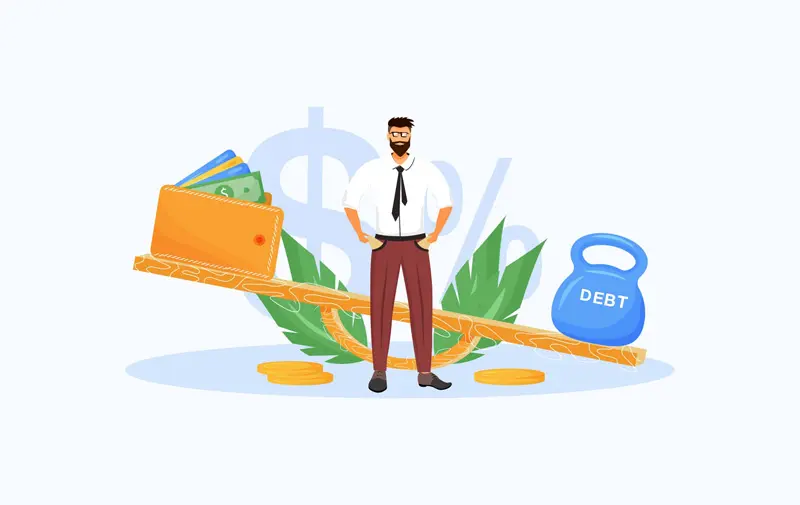What’s the Difference Between Good Debt and Bad Debt?
Let’s talk about debt! While some of your debts might be considered an investment, others are not. It is important that we can recognise and discuss the differences between where your debt is best distributed and how it can affect your ability to secure finance for bigger projects such as starting your own business.
Purchasing a home, new business or car are all essential debts for making your life more comfortable and profitable, right? While they seem like reasonable expenses, there are a few crucial differences in the way lenders view these transactions.
For a lender to secure you a loan, they must carry out a detailed inspection of your existing debt, they will then weigh up what they consider ‘good and bad,’ and base their decision on these factors. Because of this, you must know what debts are favourable and which will hinder your access to further finance.
Bad Debt
When we look at your debts from an investment perspective, we must assess their value based on their financial return. For example, let’s look at buying a new car – it looks great and feels fantastic, but realistically it will only decrease in value over time. Because of this, new car loans are often considered risky and a ‘bad debt.’ Debts like these will affect your ability to secure new loans and finance because of how your money is tied up, here are some more examples of bad debt:
Credit Cards
Credit card debt has to be the biggest killer for your credit. Designed specifically to purchase smaller items, the debt that occurs is most highly avoidable and unnecessary.
While it may be tempting to put that holiday or new pair of shoes on your credit card, you must keep in mind these expenses will not provide you with any appropriate benefits. Serving a ‘quick fix’ towards the growth of your finances, credit cards tie your money up over a long term period, and offer you no financial profitability or gain.
High Interest Loans
While getting a personal loan can seem like a necessary step in acquiring what you need, it’s important to understand how their high-interest rates and long term payment plans can affect your ability to secure other funds.
For example, if you are thinking of starting your own business and accessing the finances to make it happen, your other loans will greatly affect your eligibility for securing funds. If these loans are tied up in items that don’t contribute to your affordability, you are limiting your new business venture and its buying power.
Good Debt
Our relationship with debt in New Zealand needs to be refined, which means understanding where your money is best spent and what loans will advantage your financial position. A great example is getting a student loan to complete your Master’s degree at university. Yes, this loan will cost you money in the short term, but it will also increase your earning potential in the long term. Similar to this example, creditors view these loans as ‘good debt’:
Morgages
Securing a mortgage to buy a new home is a great way to build equity and secure other credit avenues based on its inherent value. Mortgages taken out on your home or rental properties are considered very ‘good debt’ and can actually allow you to make more from your money.
One of the great benefits of attaining a mortgage is the low interest rates you will pay throughout the loan and your properties potential to increase in value over time. Securing this type of debt will enable you to access greater pools of resources, making further investments in business ventures or property straightforward and secure.
Buying a Business
Buying a business is another example of ‘good debt,’ with similarities to attaining a mortgage, this investment has growth potential, as it will generate income over time. With low-interest rates and asset finance available, getting your business up and running for success is an excellent way to secure low-risk debt.
Owning and operating a business can provide you with a steady cash flow that will pay off your loan and provide you with an asset-rich investment, all of these factors make a ‘good debt.’
If you are wanting to secure a loan to start or grow your business, talk to the team at Spinach today. We can provide you with comprehensive loans and business advice that will maximise your opportunities to grow your financial portfolio.


